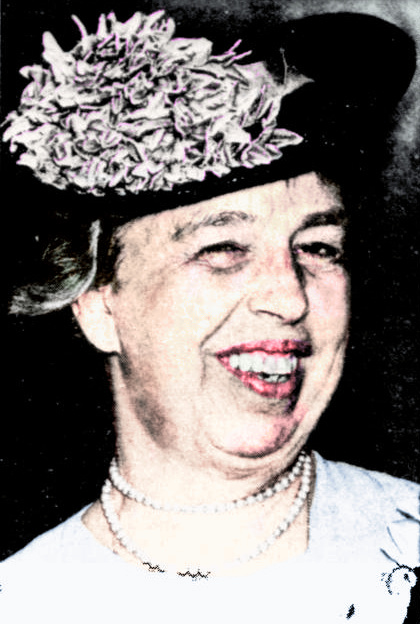
MY DAY
By Eleanor Roosevelt
August 1, 1940
Hyde Park, Wednesday –
How we rationalize with ourselves! I make myself believe that I am doing certain things for very high-minded reasons and can always find a hundred good arguments to meet any doubts that I have. So, why should I be surprised when other people do exactly the same thing – and yet I always am!
Mr. Alfred E. Smith, for instance, in the papers this morning, insists that the salvation of the Democratic Party is in ridding it once and for all, of those who represent the New Deal and who apparently control it for the time being. Some of us feel rather strongly that if it were not for the New Deal and certain policies which it represents, there would be no Democratic Party and perhaps no Republican Party left in the country today.
There you see in a nutshell how perfectly honest people can think differently on the same subject and argue themselves into such reasonable positions.
I have never been a very great partisan. I believe in arguing things out, as clearly and with as little heat as possible, and trusting to the fundamental common sense and wisdom of the majority of the people. The majority may be wrong at times, of course, and that is why minorities go on working for the things in which they believe.
It frequently happens that they eventually become the majorities. If this were not the case, once a pattern was set, it would always remain, regardless of what changes came about in the work from political reasons, or from reasons of mere evolution. It is only because the majority of us do change, that there is any chance for progress in the human race.
We came home last night and saw only the very edge of a storm, but as we progressed up the parkway, there were many evidences of what had been a very severe thunderstorm. The rain was welcome and the cool breezes this morning have made everybody ready to go out and clear up whatever debris the wind left behind. Some trees were blown down in our woods, and even along the public highway I noticed some branches gone.
I have just been over to say goodbye to my mother-in-law, who will start on her journey to Campobello Island, New Brunswick, Canada, on Friday before I return from Washington.
I have a letter from Washington this morning, which tells me that the heat there is so terrible that all those who are working for patriotic reasons, have to remind themselves frequently of their patriotism, or they would run away to a cooler climate.